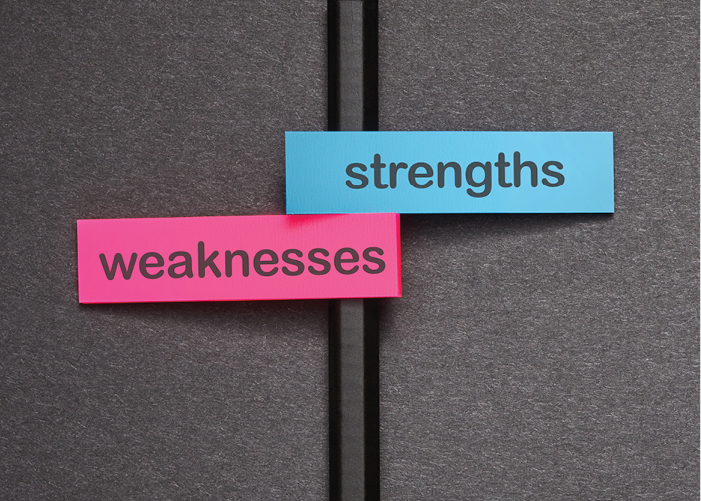How to ask a candidate about their strengths and weaknesses (in a way that gets results)
How to ask a candidate about their strengths and weaknesses (in a way that gets results)
Asking a candidate about their strengths and weaknesses in a job interview is arguably the question most candidates dread. After all, you’re being asked to reveal your flaws to someone you hope will hire you – and that can be very difficult to navigate.
But as the interviewer, you don’t want to shy away from the strengths and weaknesses question, as it can help you learn a lot about the person you’re interviewing.
And depending on how the candidate answers, it can help you determine if their weaknesses might mean they’ll be a liability in the role or struggle to do aspects of the job.
It’ll also show you whether the candidate has actually thought about their own shortcomings – if they stumble on this question, or don’t seem to know what to say, that’s a sign they may not have a lot of self-awareness about what they’re not great at, or areas they need to improve on.
Firstly, think about the tone of the interview
There are lots of ways to conduct an interview and the style and tone you set can mean the difference between your candidate giving you confident answers, or clamming up.
Be aware that a very formal interview with a panel is always going to be more nerve-wracking for the person in the hot seat. Similarly, a confrontational interview style, or a ‘stress’ interview style, where you ask awkward questions to see how a candidate acts under pressure, can also easily put your interviewees on the defensive.
Opting for a more conversational interview style may be just the ticket, and let’s face it: a relaxed and comfortable candidate is going to be more willing to share, right?
Secondly, strategise ways to frame the question
When asking about a candidate’s strengths and weaknesses, you might like to split it into two questions. Firstly, asking about strengths enables the candidate to detail what they’re particularly good at and how their skills might be relevant to the role they’re interviewing for. You can then ask the infinitely harder question – what they perceive to be their own professional shortcomings.
Of course, there are a number of ways to expose someone’s weaknesses – and getting creative with the question might be a good alternative if you’re dealing with a nervous candidate. Here are a few options:
- Tell me about a time in a previous job when you received negative feedback. What was it for and how did you handle it?
- What would your co-workers say you’re good at, and what do you think they’d say you probably think you need to work on?
- How would you rank yourself on a scale of 1-10 (with 10 being expert level) in these particular skills?
These will all help you get a better picture of where your candidate may be inadequate or need training, without coming across too strong in the interview itself.
Thirdly, know in advance what you’re looking for
Any hiring manager will hope a candidate will have thought about this question beforehand and be ready to answer it in a professional way that doesn’t damage their chance of getting the job.
Ideally, they will frame the discussion about their strengths in relation to the job description and the role’s requirements – and mention how they’re working on getting the skills they might lack.
When answering about their weaknesses, a self-aware candidate may talk about a certain skill they don’t have that the role requires, but offer a solution for learning it or upskilling. That way, you can be more certain you’re hiring the right person for the job.
Did you enjoy this post? Check out our latest blog posts.
Read more
